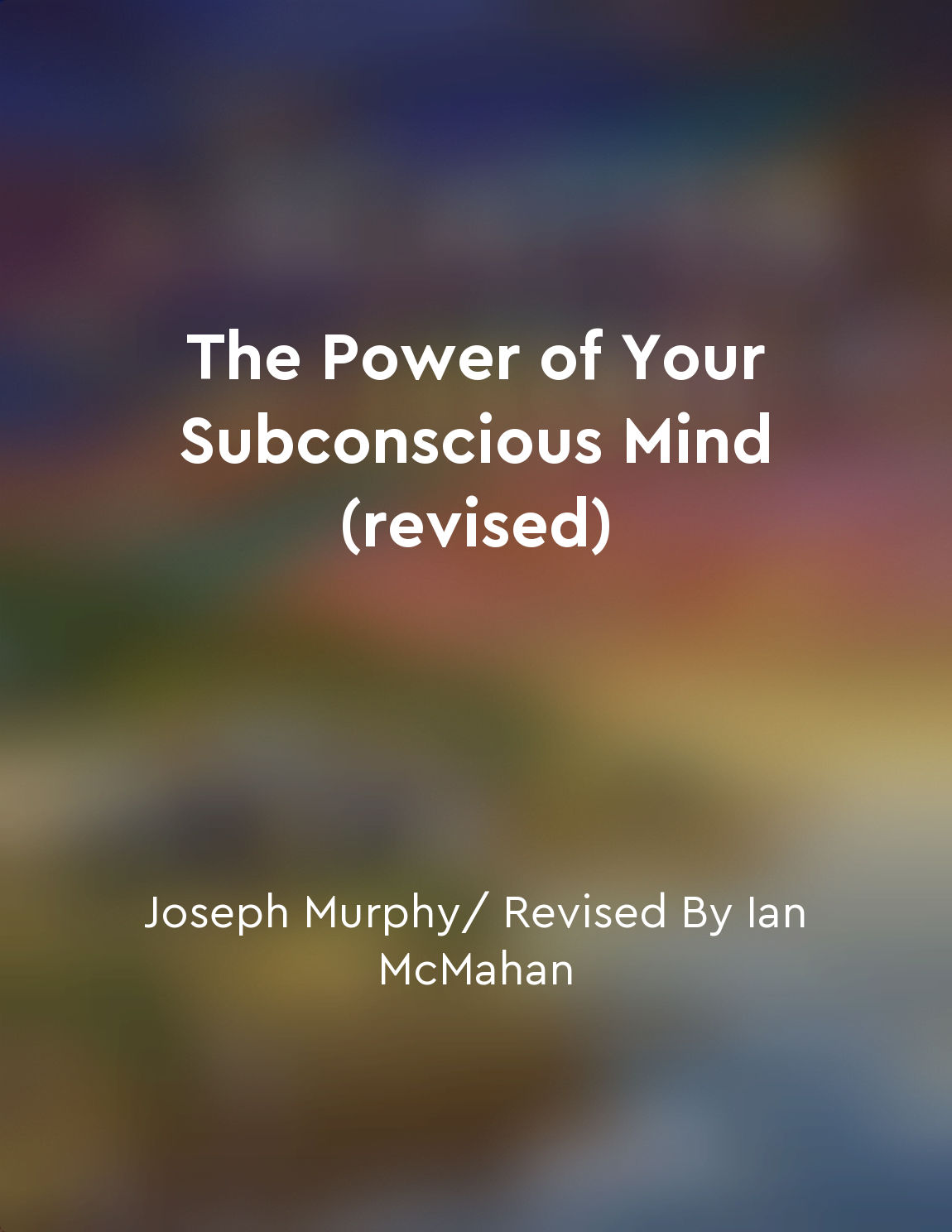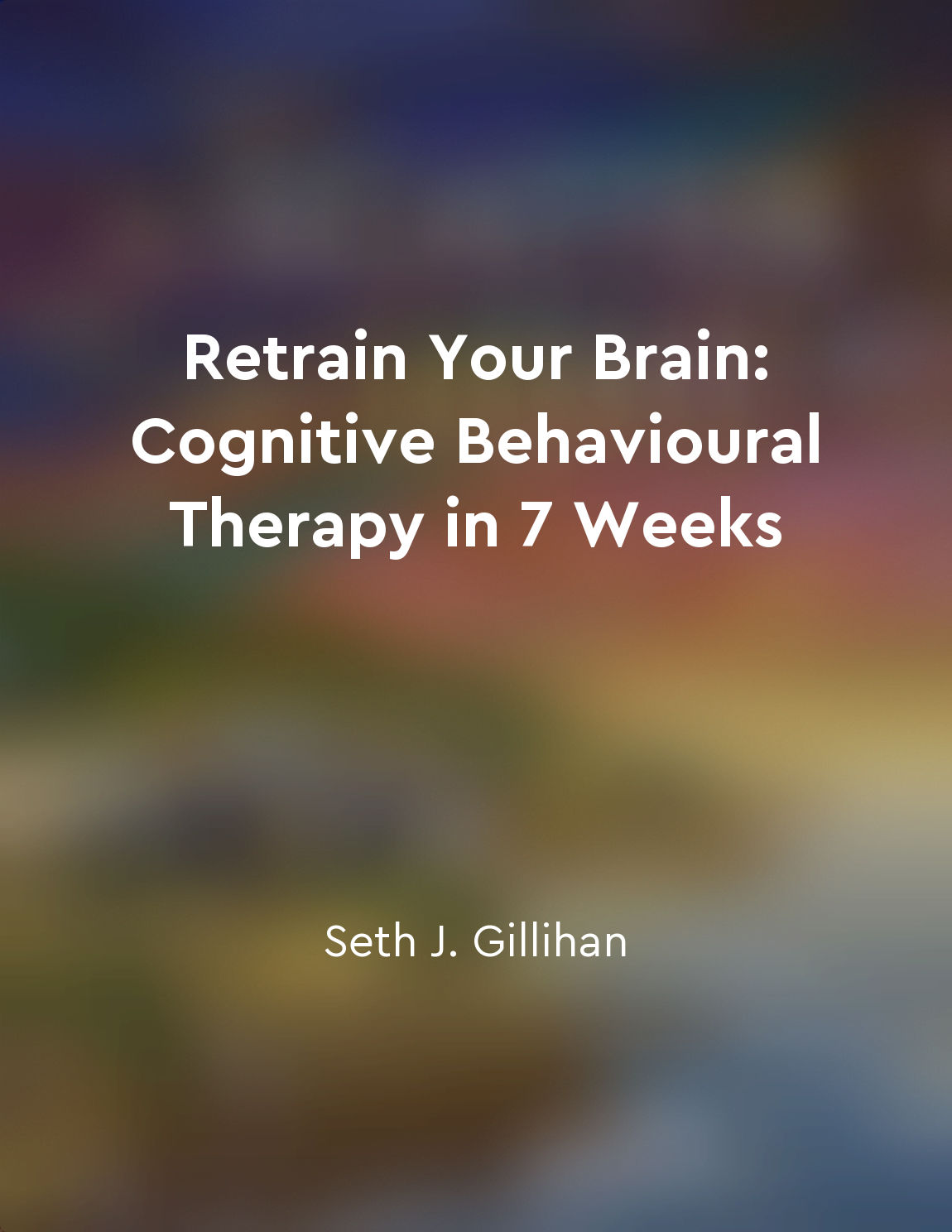Replace unhelpful thoughts with positive ones from "summary" of Retrain Your Brain: Cognitive Behavioural Therapy in 7 Weeks by Seth J. Gillihan
When we're feeling down or anxious, it's often due to unhelpful thoughts that we're holding on to. These thoughts can be automatic and ingrained, popping into our minds without us even realizing it. They may not be accurate or realistic, but they can have a powerful effect on our emotions and behaviors. One of the key principles of cognitive behavioral therapy is to identify these unhelpful thoughts and replace them with more balanced and realistic ones. The idea of replacing unhelpful thoughts with positive ones is not about forcing ourselves to be happy or pretending that everything is fine when it's not. It's about challenging the negative beliefs and assumptions that are contributing to our emotional distress. By questioning these thoughts and looking at them from a different perspective, we can often see that they're not as valid or true as they may have seemed at first. For example, if you find yourself thinking, "I'm a failure because I made a mistake at work," you can challenge this thought by asking yourself, "Is it really true that one mistake defines my entire worth as a person?" You might also consider whether there are other factors at play, such as external circumstances or unrealistic expectations. Once you've identified the unhelpful thought and challenged its validity, the next step is to come up with a more balanced and realistic alternative. This doesn't necessarily mean replacing negative thoughts with positive ones, but rather with thoughts that are more accurate and constructive. In the example above, you might reframe the thought as, "I made a mistake at work, but that doesn't mean I'm a failure. Everyone makes mistakes, and I can learn from this experience to do better in the future." It's important to practice this process regularly, as changing our thought patterns takes time and effort. The more we challenge and replace our unhelpful thoughts, the more automatic and natural it will become. Over time, we can train our brains to think in a more balanced and realistic way, leading to improved emotional well-being and behavior.Similar Posts
Manifestation is a continuous process
The process of manifestation is not a one-time event that happens only when we wish for something to come into our lives. It is...
Embrace uncertainty
We humans like certainty. We crave predictability. We want to know what’s coming next. But life isn’t always so kind. Life like...

Optimists view negative events as temporary, specific, and external
Optimists tend to have a unique way of interpreting negative events, seeing them as fleeting rather than permanent. Instead of ...

Use the law of attraction to your advantage
The law of attraction is a powerful force that governs the universe. It states that like attracts like, meaning that whatever y...

Belief in oneself paves the way for success
When you believe in yourself, you are setting the stage for success in your life. This concept of self-belief is a crucial fact...
Practice affirmations daily to reprogram your mind
Affirmations are powerful tools that can help you reprogram your mind and change your beliefs. By repeating positive affirmatio...
Celebrate your achievements
When you take the time to acknowledge and appreciate your accomplishments, you are practicing an important form of self-acknowl...

Selfawareness is a crucial aspect of mindfulness
In the practice of mindfulness, self-awareness plays a pivotal role. This means being attentive to one's thoughts, emotions, an...
Cultivate a sense of purpose for resilience
Having a sense of purpose is like having a compass that can guide you through the storms of life. It gives you a reason to keep...
Develop a routine to maintain balance
To maintain balance in life, it is essential to establish a routine that helps you stay grounded amidst the chaos of daily life...

